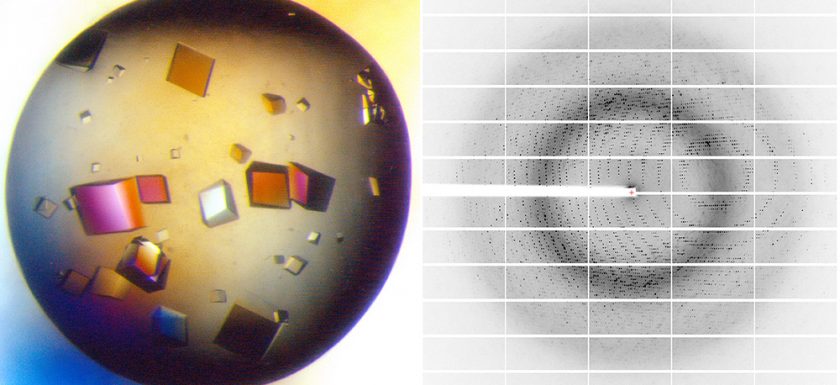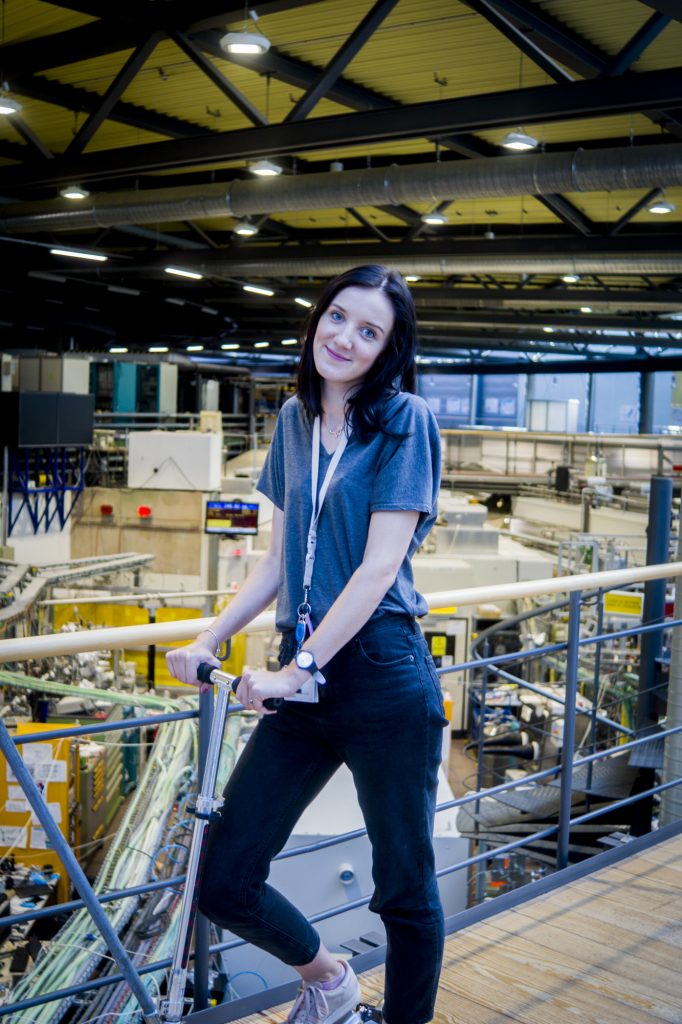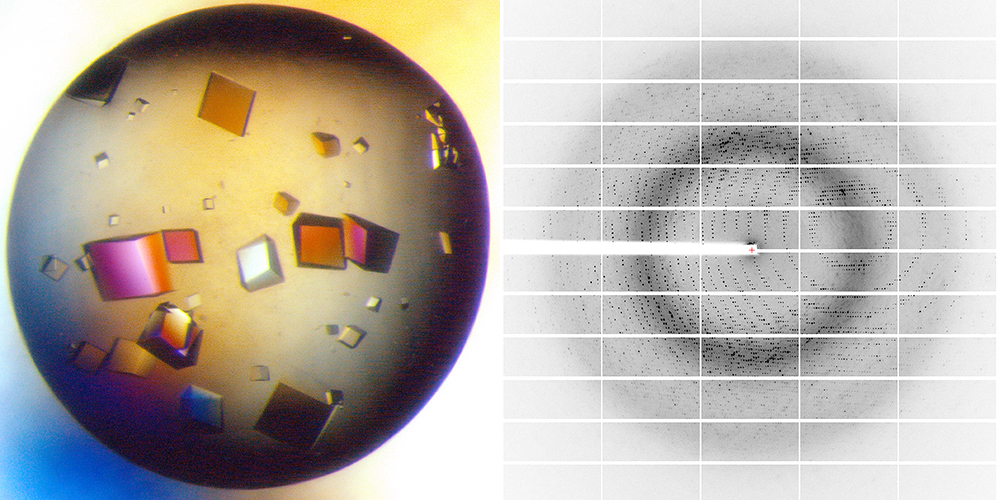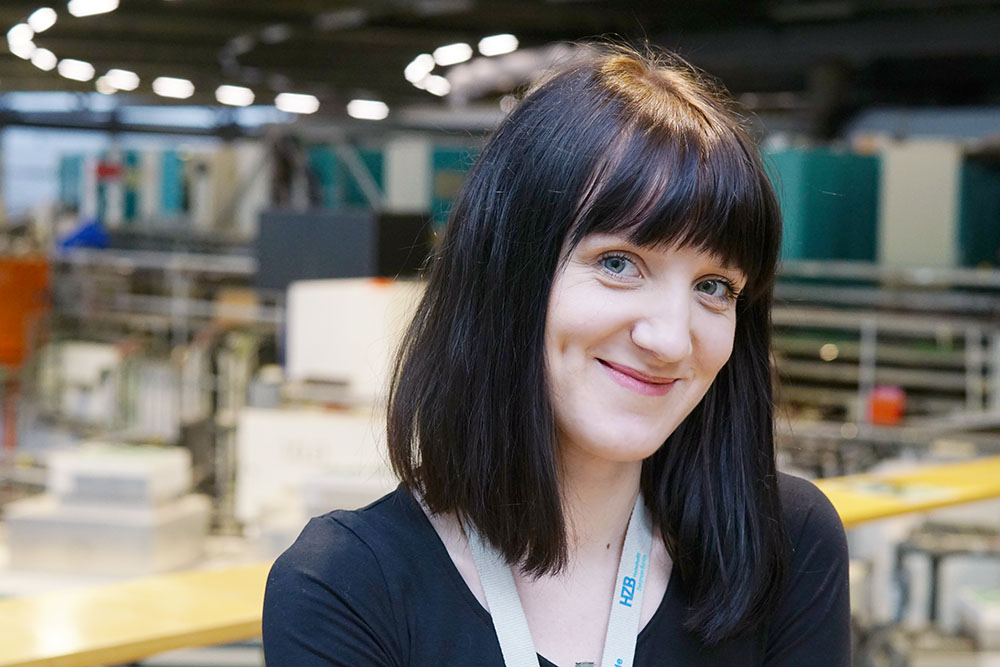
By Elżbieta Wątor
How to get back to BESSY II ?
From Kraków where I study, it’s really easy. By car – it’s around 6 hours and the route is quite convienient. There is also a Ryanair flight to Berlin Schönefeld every morning or Flixbus several times per day. But how to organise that?
Here’s my brief story:

My participation in the 2017 Summer Student Programme was a happy coincidence. In November 2016 I took part in a small student seminar at Jagiellonian University in Krakow, Poland, where Rafał Piwowarczyk (a summer student in MX group at BESSY II in 2016) talked about his stay and project. At the time, I thought that an internship abroad is really hard to organise and my chances of being accepted without advanced laboratory experience would probably not be high. But finally, one week before the deadline, I decided to try. I prepared all the necessary documents, asked for a recommendation letter and… several weeks later, in mid-March, I got an e-mail stating that I was accepted.
First contact as a summer student
I remember how excited but also anxious I was during the first day of the 2017 Summer Student Programme. I had no idea how to log onto a terminal in Linux and I couldn’t stop my hands from shaking during my first attempts of crystal fishing .
My summer student project was entitled ‘Effects of Trehalose and Trehalose-based Deep Eutectic Solvents (DES) on Crystals of Hen Egg-white Lysozyme’ and designed in a way, that enabled me to take part during the first week in the whole workflow of protein structure determination: from setting crystallisation trials, through crystal fishing, diffraction data collection, through structure determination, refinement, and finally analysis. Two months passed really fast and I liked working at BESSY II so much that I knew that I have to figure out how to continue my adventure in protein crystallography.
Planning to come back
During one of my last conversations with Dr. Manfred S. Weiss, we talked about the possibility of coming back and preparing some part of my Master thesis here at BESSY II. But I knew that it wouldn’t be so easy to make it happen.
Two days after the end of 2017 Summer Student Programme, I started my Master studies in Molecular Biotechnology at the Jagiellonian University. Because of my summer experience with beamlines, I decided to join the Protein Crystallography research group at Małopolska Centre of Biotechnology and prepare my Master’s thesis under supervision of Dr. Przemysław Grudnik. During our first conversation, I mentioned that I would like to spend some part of my final year in Berlin. My supervisor is a regular user of MX beamlines, so with his support, I started my application process.
Preparing for ERASMUS+
The Erasmus+ programme is quite popular In Poland, but not at my Faculty to be honest. It sometimes can be challenging to convince the administration that obligatory subjects elsewhere are equivalent, so it is nearly imposssible to collect the necessary ECTS credit points abroad.
To avoid those problems, I took more courses to gain some extra ECTS points during my first year in the Master programme.
Easy application process
In the Erasmus programme you can either do an internship (as an Erasmus+ internship programme) or choose to spend the whole semester abroad (Erasmus+ Studies). From my experience, an internship is easier to organise, but it is also limited in terms of time (at least 2 and at most 3 months). It can also be difficult to go abroad during the academic year. That’s why I chose Erasmus+ studies, but the Helmholtz Zentrum Berlin is not a university, so I couldn’t come here directly. In fact, I was lucky, because my faculty had signed an agreement with Freie Universitat (FU) in Berlin and I could easily apply for one semester as a biochemistry student at FU. The application process was not hard – I had to assemble a package of the necessary documents, such as my bachelor certificate, a recommendation letter from my Master thesis supervisor, and a certificate of my proficiency level in English.
Arrival in Berlin
After the official acceptance, I was able to start planning my stay in Berlin. This time it was much easier. I applied for a place in the guesthouse managed by IGAFA (where I previously stayed several times when I was at BESSY as a user) and started to learn some German (frankly, without much success?). Before I came to Berlin, I had to fill out another document called the „Learning Agreement”: I could choose courses in which I wanted to take part during my time in Berlin. In my case, I chose a what is called a „Method Module: X-ray Crystallography” (which is also partially carried out by the BESSY MX group).

My research project at BESSY II
Part of the master studies in biochemistry at FU are what are known as „Forschungsprojekte” (research projects) in which students may spend at least eight weeks working on a mini-research project outside the University in a research lab. For my „Forschungprojekt” I chose, of course, the MX group at BESSY II and I have been working since the beginning of October on the project entitled „Structural Analysis of the Loss of Function Newly Recognised Pathological Variants of Human Prolidase” under supervision of Dr. Piotr Wilk.
Orphan disease: Prolidase deficiency
This title sounds complicated and but it’s really not: Prolidase is an enzyme, which has important functions in the human body. Prolidase is encoded by a specific gene and mutations in this gene may cause a variety of severe disorders, for which there is no cure available. In the MX group, eight different pathological mutants of prolidase have already been characterised, but recently, two new mutations in the prolidase encoding gene have been discovered in patients in Brazil. In my project I was exploring the mechanism of inactivation of these two new pathological variants using macromolecular crystallography as the main tool.
Apart from that, I continued my Master thesis project during these five months I’ve spent at BESSY II. High-resolution crystal structures of proteins I’ve obtained using MX beamlines will be invaluable addition to my thesis.
Coming back
I will be back at my home University in one week, not only with my 3 pieces of luggage and a large amount of data to analyse, but also with a great wealth of experience. My adventure at BESSY II is about to end, but I believe that’s only the end of this chapter and I will be back at BESSY II many times as a user.

I hope my brief story will encourage other students to consider spending some part of their studies at BESSY II. Spending summer (or a semester) as a part of an international team and working on on a daily basis with powerful bunch of photons is fantastic experience and can really change the trajectory of your scientific career.
Thank you!
I
would like to take this opportunity to thank:
Dr. Manfred Weiss for once again giving
me the opportunity to work in the MX group. I return to Kraków with even
more certain that I want to pursue a career in structural biology.
Dr. Piotr Wilk for continuous
mentorship, great patience and unfailing motivation during daily lab work.
Dr. Christian Feiler for continuing
to be my unofficial supervisor (even after the end of Summer Student Programme?)and helping solve a big
part of my clonning and purification problems
all the MX group members for warmly
welcoming me back(like I’d never left?)
and Dr. Przemysław Grudnik for
long-distance supervision and his trust in letting me do part of my Master
thesis abroad ?
[Footnote] Protein crystals are extremely tiny – we need to „fish” them from the solvant in which they grow with some sort of hook
